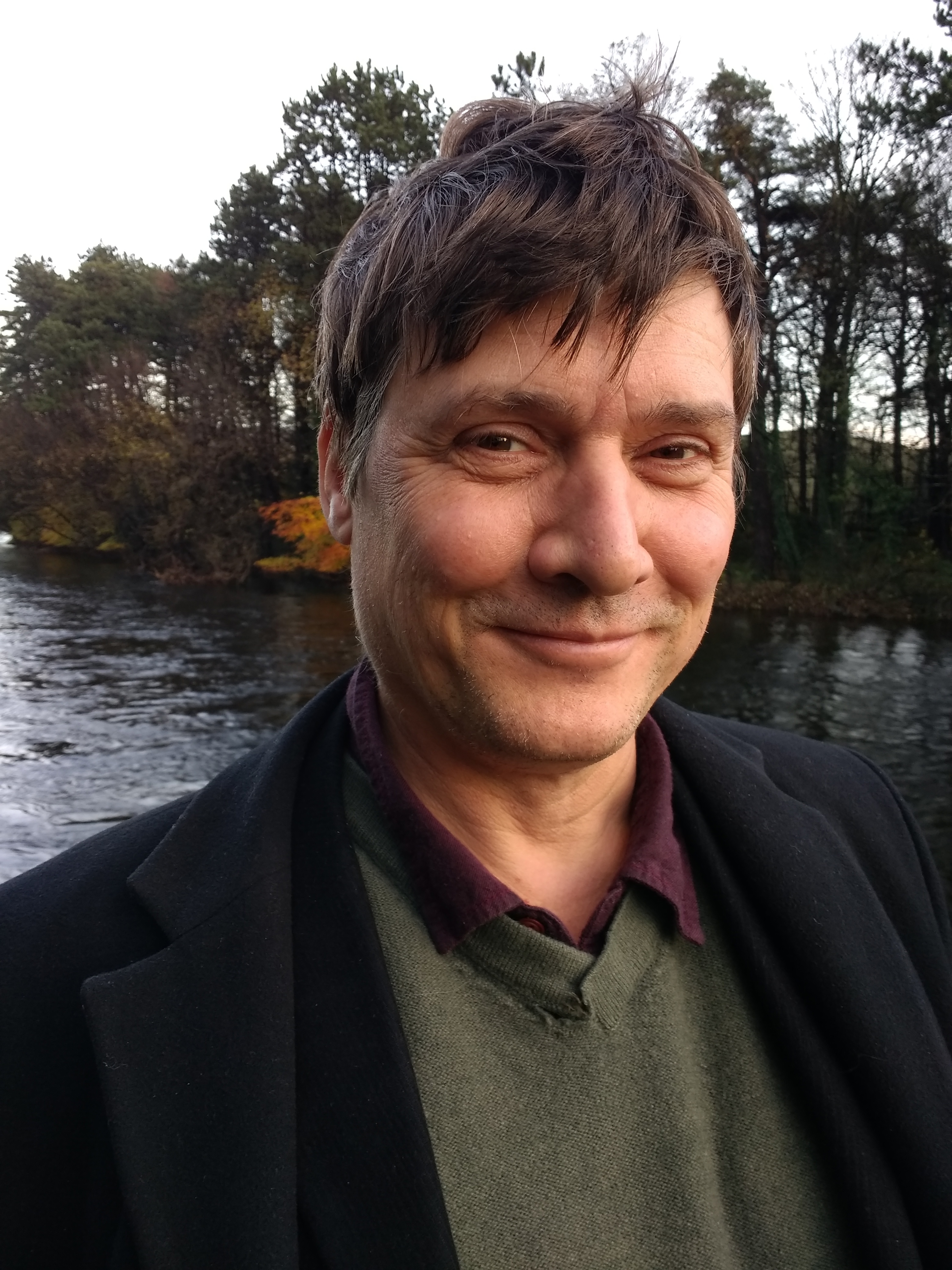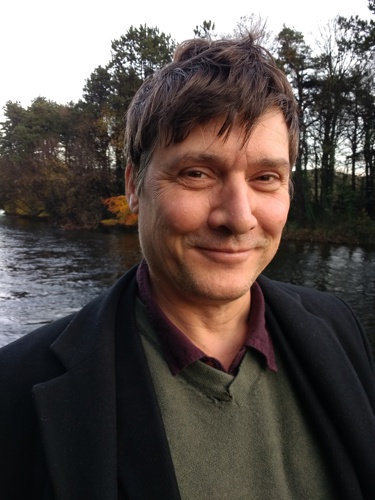The Back of the Playground - Graham Morgan
Posted by See Me, 21 January 2019
Graham Morgan has previously spoken at our Human Rights, Equalities and Mental Health Event in December 2018. He has recently written a book called 'Start' and has kindly given us some extracts from it to share with you over the coming weeks. Graham has a diagnosis of paranoid schizophrenia, has an MBE for services to mental health, helped to create the Mental Health Care and Treatment Act and has been on a compulsory treatment order under the act for the last 9 years.


The Back of the Playground
I think to myself that I demean the people around me and shame myself if I try to explain my life with tales of trauma. That when I talk of trauma it is like dancing through meadows with butterflies compared to what so many people I know have been through.
And I know. Because I tell people too; the savage burn of experience is not constant, or otherwise no Jew from the thirties, no black man from South Africa in the fifties, no survivor of famine and no refugee from conflicts I have never heard of would be free of torment and illness.
And those who gasp blank-eyed and say, “It hurt when you looked at me in that way, it hurt when I feared you had left me, it hurt when I put my hand up in class and everyone laughed.”
And who, still today, cringe at the statements that let them know they are not perfect and I know, I know so well that these realities too contain their own dark seeds, and those dark seeds have their own parasites that feed so blindly on our inner faith but, even though I know, I turn to myself and say, ‘I never suffered, not in that way, so why, when I look over my shoulder, do I wince and say “I wish, I wish it had been different?”’
That edge I talk of, that hurt. Maybe I talk of something we all have, but when I think of it, I think of people who have been marked in some way, maybe by the pain of the past, or even the pain of the future but more by that sense of apartness. Most of all I think of those people I know, who live for the time that they may be acknowledged and loved.
I think of the outbursts when we are trying to discuss issues, that raw energy which silences and sometimes makes us angry because we may have similar tales we do not want to impose on ourselves or others.
The sudden gushing in a discussion on care homes being overtaken by the experience of being a young child, mute, alone in a slaughterhouse full of maggots, waiting for the feared caress.
I think of the casual laughing conversations about being beaten up by husbands, of knowing what it is like to have your bones broken by someone who says he loves you.
I think of the odd line in my thoughts when someone says they were sorry they couldn’t come to the meeting because they were in hospital after another overdose, or meeting with social workers to see when they could see their children again, or they are off to see if they can get their benefits reinstated or they would like to help our cause, but first they need to find somewhere they can live and sleep out of the rain.
It is that apartness, the fact that we can, and do, casually litter our conversation with tragedy without realising that many people cannot hear what we say and do not want to hear it. It is almost the fact that we become conversation pieces, that our darkest moments, the things that make us separate are the sorts of things people like me put on a page like this.
It is that I can write that my good friend’s house smelt of burnt meat for days after her dad had a heart attack and fell into the fire when she was a child; that she went to school as normal on the day of his funeral and came back to find the gathering of relatives after the burial, in progress. That she didn’t have anyone to explain to her what had happened when her mum was taken away after attempting suicide, that her brother was killed in a car crash and when I sit late at night and hear stories such as these, I understand why she may sometimes talk incessantly, never pausing or relaxing till she slips into those days when the world is a grey cotton with dark clouds.
It is that edge, the wee quirks, the people who smile vaguely and never speak much, but whose hands are covered in cigarette burns, who shyly hand in small articles for newsletters in which they say when they harm themselves they are remembering the fists of their father.
It is that edge where someone absents herself after too long in our company, needing space, needing not to think.
It is the person who cannot decide whether to show the deep twisted scars that litter and distort her wrist or by not showing them admit to shame, who has to say to strangers, ‘Oh, don’t hug me, I can’t do hugs.’
Or the person who will not eat food in public, has to politely refuse every offer of meat or cheese or bread when around others at lunchtime.
I remember years ago, Mark would start dancing with someone in a nightclub and say, ‘Hi I’m Mark, I’m manic depressive.’
And sometimes that was a good thing to say.
I don’t understand those layers of judgement with which we cloak our interactions and beliefs about each other. Those half-bitten words that say, ‘You, the mentally ill, are really failures, are really the losers, the frauds, the scroungers.’
That say with slight changes in expressions, and through small, easily retracted innuendoes, that,
‘Although we do not judge, we do know that if only you did do the pulling together, move beyond the helpless self-pity, start to employ just a scrap of logic to your reasoning and a modicum of sense to your arguments and a levelling of order in your emotions. If you did this, as everyone can. If you just put a bit of effort into it, then life would be easy, would be fine and dandy and we could all just get on with the day to day job of living.’
It makes me furious that there is this attitude. I am furious at the lack of compassion and understanding. At the complete ignorance this all betrays, as if mental illness is a simple puzzle to solve, just tweak here, add some hope, a bit of friendship, a job or two and there you go.
And I am furious because I believe it too.
I look at some of my friends and companions when they are slack with a despair so profound it doesn’t even have the energy to call itself despair. And I want to grab my friends by the shoulders and shake them back and forward so their hair flies in all directions and slowly a spark of something appears in their eyes. I want to shake them and say, ‘Stop it! Stop this helpless, hopeless mess you are in. Stop this apathy, this slow, slow descent into oblivion.’
I want to shake them back into life, back into being the vibrant, loving people I know them to be and I cannot, and I know I will not and that it would never work, but I want to so much.
